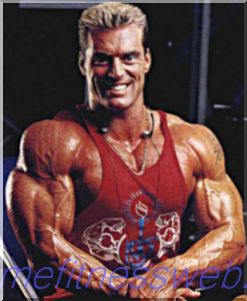
In training, calories are “burned”, metabolism is accelerated. This speed also persists after training (about half an hour).
Exercise helps build muscle, which absorbs energy. Along with increasing muscle mass, metabolism accelerates and a person needs more calories.
Exercise forces the body to burn fat. But the results depend on the intensity and number of exercises, and on nutrition. After all, muscles do not come from nowhere. For them to grow, the body must receive the substances necessary for this from food.
It is always necessary to remember that muscle needs protein. But for muscle mass to increase, you also need energy, the source of which is carbohydrates and fats. Carbohydrates are absorbed quickly by the body, and fats are stored.
But these substances are not enough. Vitamins and minerals are needed. It is necessary to remember about water, which plays an important role in the processes of the body. Drinking water stimulates an increase in muscle mass.
You can increase muscle mass if the body provides more calories than it is able to use up. Protein is also needed, and in a certain amount. You need to eat 5-6 times a day, reduce the amount of refined carbohydrates (sugar, chocolate, cakes) and vegetable fats. Do not eat food that contains carbohydrates at night.
In order for muscle mass to grow continuously, food must be regularly ingested.
In the morning, the struggle between anabolic hormones and catabolic hormones begins. Anabolics increase muscle mass, catabolics reduce it. It is very important which hormones will triumph. Need to help anabolics win. If it works the other way around, any training will become meaningless. Anabolics will help proper nutrition. However, it is not enough to simply get the calories you need. It is important that the calories are delivered to the body at a strictly defined time.
The human body, which builds muscle mass, is afraid of hours-long breaks in food intake. After eating, foods break down into primary elements - amino acids, fat molecules, macro- and monosaccharides, vitamins and trace elements. The abdominal cavity is filled with a huge amount of blood, in which the intestines float, from which nutrients move into the blood, delivering them to all organs. If the blood is empty for several hours in a row, the body is disturbed. The secretion of catabolics begins, which begin to destroy muscle mass by “husking” amino acids. The body begins to “chew” itself.
You might think that you just need to eat more. This is not entirely true. Food should be taken regularly, at a certain time. Be sure to consume carbohydrates and proteins immediately after waking up, immediately before the start of training, as well as within half an hour after it. For the fourth time, charge with proteins and carbohydrates should be half an hour before bedtime. Only following such a schedule helps to increase muscle mass.
Content
- 1 Immediately upon awakening
- 2 Before training
- 3 After training
- 4 before falling asleep
Right after waking up
In the morning there is an unpleasant situation - eight or even ten hours have passed after a meal. In the afternoon, the stomach protests after three, three and a half hours. Nighttime fasting is three times longer. The catastrophe began in the body! Protein and fructose should be taken immediately. At the expense of proteins, everything is clear. And here fructose "> Before training
If the training will begin an hour or two after eating, then in the locker room you need to take 20-40 g of "slow" carbohydrates and 20 g of whey protein. To increase muscle mass, it is necessary that the blood contains BCAA amino acids. And “slow” carbohydrates increase the amount of energy and put off fatigue.
So, you need 20 g of whey protein, one fruit, which gives 195 calories, 30 g of carbohydrates, 22 g of protein and 0 g of fat.
A natural source of protein is canned tuna on water (150 g) and two slices of whole grain bread, which contains 265 calories, 23 g of carbohydrates, 20 g of protein, 5 g of fat. You can replace roast beef (60-80 g) and a fitness bar that contains 220 calories, 23 g of carbohydrates, 20 g of protein and 5 g of fat.
After training
For the body, exercise is stress. Muscle cells require nutrients. During training, the muscles absorb a huge amount of amino acids, hormones, sugar and oxygen. The process does not end with the completion of the exercises. Inertia persists for about half an hour after training. You should immediately “feed” muscle cells - urgently use “fast” carbohydrates and protein. It is a muscle growth material that makes up cellular protein.
You need 40 g of protein and 40-80 g of "fast" carbohydrates. 40 g of protein is 180 g of chicken breast and 2 slices of white bread, which contains 288 calories, 29 g of carbohydrates, 37 g of protein and 2 g of fat. Carbohydrates - 20 g of casein, 1-2 scoops of Vitargo, which contains 520 calories, 81 g of carbohydrates, 43 g of protein and 1 g of fat. All this can be replaced with two cups of hot chocolate made in whole milk, which contains 314 calories, 52 g of carbohydrates, 16 g of protein and 6 g of fat.
Before falling asleep
To avoid catabolism in a dream, immediately before falling asleep, you need to use 20 g of casein, which sticks together and slowly dissolves under the influence of enzymes and gastric juice. Muscles get amino acids and peptides all night.
Do not eat carbohydrate foods at bedtime. Energy is not needed while a person is sleeping, so carbohydrates will turn into fat deposits. However, healthy fats do not interfere at all - they will slow down the absorption of casein.
Before falling asleep, 20 g of “slow” protein and slightly unsaturated fats are needed. 20 g of casein contains 720 calories, 23 g of protein and 5-10 g of vegetable oil. Protein can be replaced with one cup of homemade cheese, which contains 163 calories, 6 g of carbohydrates, 28 g of protein and 2 g of fat.
Another option is 2 slices of low-fat cheese, which contains 150 calories, 3 g of carbohydrates, 18 g of protein and 9 g of fat.
Example menu for a bodybuilder weighing 85 kg
After a night's sleep
20 g of whey and 250 g of orange juice
On breakfast
A cup of oatmeal, a cup of berries, a slice of low-fat cheese, three whole eggs.
Lunch
Whole grain bun, honey (tablespoon) and peanut butter (two tablespoons).
For lunch
Burger with tuna (150 g of canned tuna on water and one tablespoon of mayonnaise), two slices of whole grain bread, a cup of boiled peas, a cup of leaf lettuce.
Before training
20 g of whey and one fruit
After training
20 g of executions, 20 g of serum and 1-2 ml of Vitargo
For dinner
Tartilla (cut 250 g of grilled beef, half a cup of beans, cut half an onion, half a bell pepper, half an avocado, add olive oil - a tablespoon and hot sauce - two tablespoons), two unleavened cakes and two cups of vegetable salad.
Before falling asleep
20 g casein
3241 calories, 294 g of protein, 338 g of carbohydrates, 95 g of fat are consumed per day.
The main reason for the inefficiency of training is most often lies precisely in malnutrition. If a bodybuilder eats properly, he exercises better. Muscle mass is growing faster.
But it happens that a person eats properly, but there is no result. Most often this happens to beginners who devote too much time to training. They forget that the capabilities of the human body are limited. He needs a rest. If rest is not enough, muscle mass does not increase. Fatigue affects.








